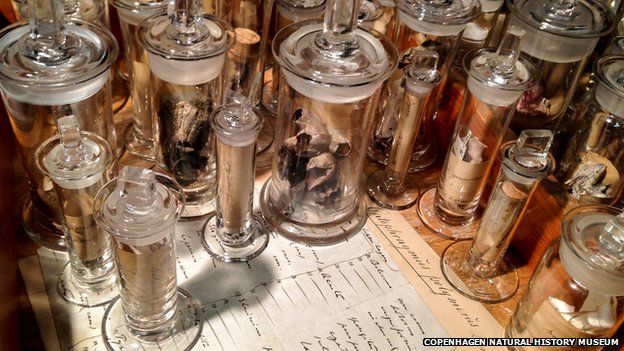A letter describing the characteristics of 77 different species of barnacles penned by Charles Darwin has been rediscovered. The barnacles that Darwin described have also been recovered. Hanne Strager, Head of Exhibitions at the Natural History Museum of Denmark, found the letter and recovered the barnacles.
Before he ever wrote On the Origin of Species, Darwin sent 77 samples of cirripedes (barnacles) back to Japetus Steenstrup, director of the Royal Museum of Natural History, in 1854, with a letter describing the samples as a gift in thanks for Steenstrup’s assistance in lending the samples to Darwin. Steenstrup was himself a pioneer in zoology, cephalopods, genetics, and was the first to document the effects of climate change on plant growth. The lost letter confirms Darwin’s use of these samples in developing his concepts of evolution.
The Darwin Correspondence Project could confirm the existence of the letter from Darwin to Steenstrup but could not find it. Strager found the letter and recovered the majority of the original barnacles among the 14 million items in the Natural History Museum of Denmark. The letter contains numbers and a scientific name for each of the species of barnacles. The writing was so poor that experts took almost three months to decipher the script. The barnacles were collected from several exhibits and storage areas in the museum. The missing barnacles will hopefully be returned by those who now own them.
The missive is one of the few known correspondence between two early pioneers of evolutionary science. Denmark’s new giant dinosaur “Misty” is scheduled to be the star of the upcoming exhibit. Darwin’s barnacles may eclipse even a dinosaur due to the rarity of the 160-year-old letter and the history it defines.















